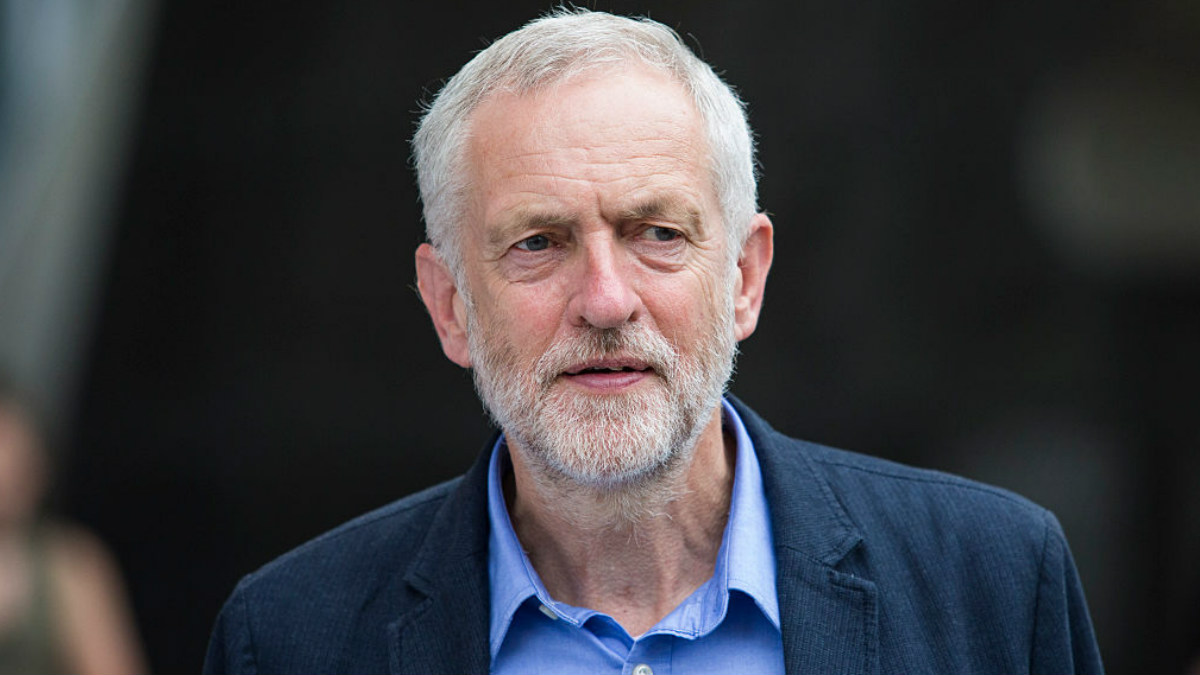Has 2016 done for Labour?
New post-Brexit report says Jeremy Corbyn’s party could lose ground after a 'damaging' year

A free daily email with the biggest news stories of the day – and the best features from TheWeek.com
You are now subscribed
Your newsletter sign-up was successful
The Labour Party could find itself "squeezed on all sides" following the rapidly-changing political landscape of 2016, according to a new report six months after the European Union referendum result.
The UK in a Changing Europe think-tank suggests that the six months following the Brexit vote have been the "most tumultuous period in British politics since the Second World War".
The Guardian lists "a new prime minister; leadership challenges in Labour and Ukip; the creation of two major new Whitehall departments; and Scottish independence back on the agenda, as well as the prospect of leaving the European Union," as major changes in the past six months.
The Week
Escape your echo chamber. Get the facts behind the news, plus analysis from multiple perspectives.

Sign up for The Week's Free Newsletters
From our morning news briefing to a weekly Good News Newsletter, get the best of The Week delivered directly to your inbox.
From our morning news briefing to a weekly Good News Newsletter, get the best of The Week delivered directly to your inbox.
Dr Simon Usherwood from the University of Surrey said of the changes that "while none of these alone is unprecedented, there has been no moment in the post-war period when so much has happened almost at once".
The think-tank took aim at Labour's situation, suggesting this era of political instability in the UK, and the current Conservative government, could benefit other parties, but that it is unlikely Labour will be able to capitalise after a damaging year of in-fighting and indecisiveness.
In the report, political scientist Matthew Goodwin points to Labour's tumultuous referendum campaign to highlight how the vote "exposed a deep and widening divide in the political geography of Labour support".
Goodwin highlights that 70 per cent of Labour-supporting constituencies in the UK voted to leave the EU, and that a tension has developed "between working-class, struggling, Eurosceptic and anti-immigration, and more financially secure, middle class, pro-EU and cosmopolitan wings poses strategic dilemmas for Labour and provides opportunities for its main rivals".
A free daily email with the biggest news stories of the day – and the best features from TheWeek.com
The report also takes into account what appears to be growing support for the Liberal Democrats. The Lib Dems have come ahead of Labour in multiple by-elections since the referendum and could siphon off other Labour voters who feel that Corbyn's party did not oppose Brexit strongly enough.
"Should the Liberal Democrats, rather than Labour, manage to project themselves as a 'new' political home for remainers who loathe Brexit and the Conservative party but also despair of Corbyn’s leadership, then in some seats this holds the potential to divide the more socially liberal and remain-focused group of voters, at the same time as Ukip is trying to win over working-class voters who used to support Labour," according to Goodwin.
Predicted to be a litmus test for the coming year, a close eye will be kept on the upcoming by-election in Copeland, Cumbria, which was triggered by the resignation of Labour MP Jamie Reed. With the party's slim majority in Copeland, Corbyn will no doubt be watching nervously as a heavy defeat could signal the start of a difficult 2017 for Labour.
-
 Key Bangladesh election returns old guard to power
Key Bangladesh election returns old guard to powerSpeed Read The Bangladesh Nationalist Party claimed a decisive victory
-
 Judge blocks Hegseth from punishing Kelly over video
Judge blocks Hegseth from punishing Kelly over videoSpeed Read Defense Secretary Pete Hegseth pushed for the senator to be demoted over a video in which he reminds military officials they should refuse illegal orders
-
 Trump’s EPA kills legal basis for federal climate policy
Trump’s EPA kills legal basis for federal climate policySpeed Read The government’s authority to regulate several planet-warming pollutants has been repealed
-
 How corrupt is the UK?
How corrupt is the UK?The Explainer Decline in standards ‘risks becoming a defining feature of our political culture’ as Britain falls to lowest ever score on global index
-
 Reforming the House of Lords
Reforming the House of LordsThe Explainer Keir Starmer’s government regards reform of the House of Lords as ‘long overdue and essential’
-
 How long can Keir Starmer last as Labour leader?
How long can Keir Starmer last as Labour leader?Today's Big Question Pathway to a coup ‘still unclear’ even as potential challengers begin manoeuvring into position
-
 The high street: Britain’s next political battleground?
The high street: Britain’s next political battleground?In the Spotlight Mass closure of shops and influx of organised crime are fuelling voter anger, and offer an opening for Reform UK
-
 Biggest political break-ups and make-ups of 2025
Biggest political break-ups and make-ups of 2025The Explainer From Trump and Musk to the UK and the EU, Christmas wouldn’t be Christmas without a round-up of the year’s relationship drama
-
 ‘The menu’s other highlights smack of the surreal’
‘The menu’s other highlights smack of the surreal’Instant Opinion Opinion, comment and editorials of the day
-
 Is a Reform-Tory pact becoming more likely?
Is a Reform-Tory pact becoming more likely?Today’s Big Question Nigel Farage’s party is ahead in the polls but still falls well short of a Commons majority, while Conservatives are still losing MPs to Reform
-
 The launch of Your Party: how it could work
The launch of Your Party: how it could workThe Explainer Despite landmark decisions made over the party’s makeup at their first conference, core frustrations are ‘likely to only intensify in the near-future’